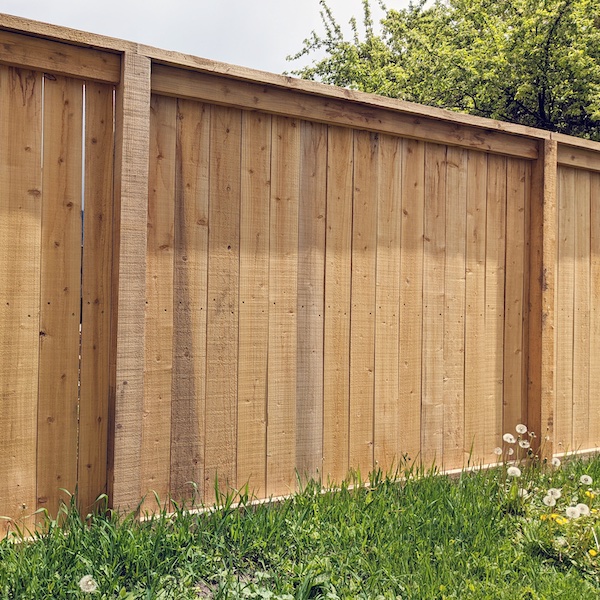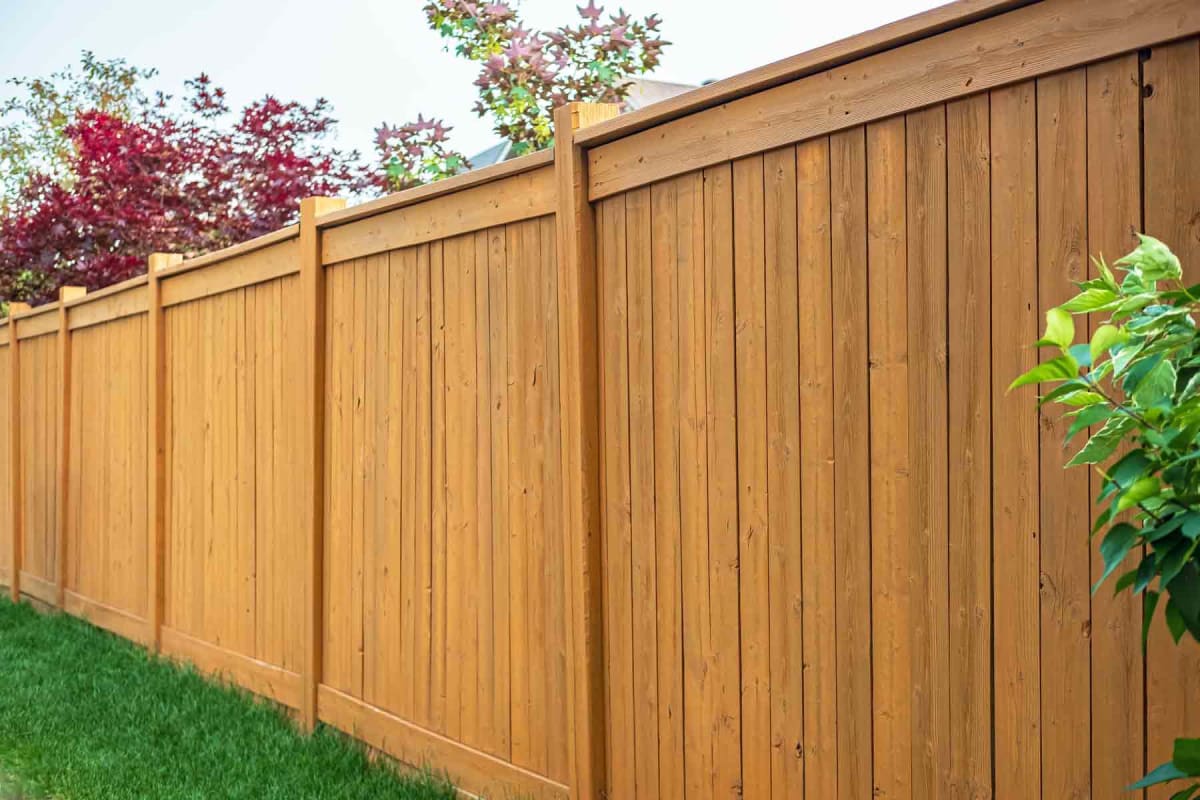All Categories
Featured
When picking a fence for your residential or commercial property, it's vital to think about aspects like price, toughness, upkeep, and aesthetic allure. Three of one of the most popular products for commercial and domestic fences are vinyl, aluminum, and timber. Each offers one-of-a-kind benefits and some downsides, making it crucial to examine your requirements before deciding. Listed below, we contrast the benefits and drawbacks of these products to assist assist your option.
Wood Secure Fencing. Pros:
![]()
Natural Visual: Wood fences are recognized for their classic, natural appearance. They can conveniently blend right into many landscapes and boost the beauty of your home or company. Whether you're aiming for a rustic look or a more sleek finish, wood can be tailored with paint, tarnish, or sealant. Modification: Wood is one of the most functional materials, permitting a wide range of designs, such as picket fences, personal privacy fencings, and ranch-style enclosures. It's very easy to adjust the design to fit the certain demands of your home. Inexpensive: Normally, wood fences come at a lower initial price compared to plastic or aluminum, making them an economical alternative for those on a budget plan. Cons:
Maintenance Requirements: Wood fences call for regular upkeep to preserve their beauty and capability. This includes discoloration or paint to secure versus rot, termites, and climate damages. Without correct care, wood can weaken with time. Much Shorter Life Expectancy: Contrasted to plastic or light weight aluminum, timber fencings tend to have a much shorter life-span, particularly in locations with extreme climate. Severe conditions, such as hefty rain, moisture, or snow, can trigger wood to wear away much more swiftly. Prone to Damages: Timber fencings are prone to harm from bugs, consisting of termites, along with natural wear from climate. They might additionally warp or split otherwise properly preserved. Vinyl Fencing. Pros:
Reduced Upkeep: Among the major advantages of plastic fences is that they need minimal upkeep. Unlike timber, vinyl doesn't require to be repainted, sealed, or stained. It's resistant to fading, discoloration, and breaking, which saves time and money on upkeep. Toughness: Vinyl is known for its ability to stand up to severe weather condition problems without deteriorating. It's invulnerable to parasites like termites, and its resistance to wetness and UV rays guarantees it stays looking helpful for many years. Long-Lasting: A plastic fencing can last as much as thirty years or more, making it a wonderful long-term financial investment. Many makers provide warranties, better improving its value. Range of Styles: Vinyl fences are readily available in numerous colors and styles, consisting of those that resemble wood. You can select from privacy, picket, or attractive designs, giving adaptability to match your home or organization. Cons:
![]()
Greater Upfront Cost: Vinyl fencings have a tendency to have a greater initial price than wood. While the lasting financial savings on upkeep are considerable, the ahead of time investment might be a deterrent for some home owners. Limited Customization: Plastic fencings can be found in basic layouts, and while shades and designs are varied, you may not have as much flexibility for personalization contrasted to wood. Cracking in Cold Climates: While vinyl is durable, in extremely cool environments, it can come to be weak and fracture upon impact, which can be troublesome in locations with extreme winters. Aluminum Secure fencing. Pros:
Reduced Maintenance: Light weight aluminum fencings are known for their low-maintenance requirements. Unlike timber, aluminum doesn't rust or corrode, and it does not require to be painted or secured. This makes it a great selection for those who desire a hassle-free option. Longevity and Stamina: Light weight aluminum is a robust material that stands up well to extreme climate condition. It's an outstanding choice for seaside areas where deep sea deterioration is a problem, as it's immune to rust. Aesthetic Charm: Aluminum fences provide a tidy, stylish appearance, often utilized for decorative functions. They're available in different designs, including decorative styles, and can include a high-end feel to your residential or commercial property. Security: Light weight aluminum fences are sturdy and deal fantastic security, specifically when set up with locks or gateways. Their sturdy building provides a trusted obstacle versus undesirable access. Disadvantages:
![]()
Higher First Cost: Light weight aluminum fences have a tendency to be much more pricey than timber, particularly if you go with decorative layouts. The upfront expense might be prohibitive for some. Much Less Personal privacy: Aluminum fencings commonly have broader gaps in between the slats, which implies they give much less privacy than timber or vinyl fences. If seclusion is a concern, light weight aluminum may not be the best choice. Nicking Issues: While aluminum is rust-resistant, it is susceptible to denting or bending if struck with force. A car crash or heavy effect can trigger long-term damages to the fence. Which Fence Material is Right for You? Selecting the right fence depends on several elements, including your budget, style choices, maintenance capability, and the atmosphere in which you live. If you want a natural look and are prepared for routine upkeep, timber may be the right alternative.
Ultimately, each fence product has its benefits and drawbacks, so it is necessary to evaluate what matters most for your specific needs. Consider the climate, the level of personal privacy you call for, and just how much maintenance you want to dedicate to, and you'll find the perfect fence for your building.
Wood Secure Fencing. Pros:

Natural Visual: Wood fences are recognized for their classic, natural appearance. They can conveniently blend right into many landscapes and boost the beauty of your home or company. Whether you're aiming for a rustic look or a more sleek finish, wood can be tailored with paint, tarnish, or sealant. Modification: Wood is one of the most functional materials, permitting a wide range of designs, such as picket fences, personal privacy fencings, and ranch-style enclosures. It's very easy to adjust the design to fit the certain demands of your home. Inexpensive: Normally, wood fences come at a lower initial price compared to plastic or aluminum, making them an economical alternative for those on a budget plan. Cons:
Maintenance Requirements: Wood fences call for regular upkeep to preserve their beauty and capability. This includes discoloration or paint to secure versus rot, termites, and climate damages. Without correct care, wood can weaken with time. Much Shorter Life Expectancy: Contrasted to plastic or light weight aluminum, timber fencings tend to have a much shorter life-span, particularly in locations with extreme climate. Severe conditions, such as hefty rain, moisture, or snow, can trigger wood to wear away much more swiftly. Prone to Damages: Timber fencings are prone to harm from bugs, consisting of termites, along with natural wear from climate. They might additionally warp or split otherwise properly preserved. Vinyl Fencing. Pros:
Reduced Upkeep: Among the major advantages of plastic fences is that they need minimal upkeep. Unlike timber, vinyl doesn't require to be repainted, sealed, or stained. It's resistant to fading, discoloration, and breaking, which saves time and money on upkeep. Toughness: Vinyl is known for its ability to stand up to severe weather condition problems without deteriorating. It's invulnerable to parasites like termites, and its resistance to wetness and UV rays guarantees it stays looking helpful for many years. Long-Lasting: A plastic fencing can last as much as thirty years or more, making it a wonderful long-term financial investment. Many makers provide warranties, better improving its value. Range of Styles: Vinyl fences are readily available in numerous colors and styles, consisting of those that resemble wood. You can select from privacy, picket, or attractive designs, giving adaptability to match your home or organization. Cons:

Greater Upfront Cost: Vinyl fencings have a tendency to have a greater initial price than wood. While the lasting financial savings on upkeep are considerable, the ahead of time investment might be a deterrent for some home owners. Limited Customization: Plastic fencings can be found in basic layouts, and while shades and designs are varied, you may not have as much flexibility for personalization contrasted to wood. Cracking in Cold Climates: While vinyl is durable, in extremely cool environments, it can come to be weak and fracture upon impact, which can be troublesome in locations with extreme winters. Aluminum Secure fencing. Pros:
Reduced Maintenance: Light weight aluminum fencings are known for their low-maintenance requirements. Unlike timber, aluminum doesn't rust or corrode, and it does not require to be painted or secured. This makes it a great selection for those who desire a hassle-free option. Longevity and Stamina: Light weight aluminum is a robust material that stands up well to extreme climate condition. It's an outstanding choice for seaside areas where deep sea deterioration is a problem, as it's immune to rust. Aesthetic Charm: Aluminum fences provide a tidy, stylish appearance, often utilized for decorative functions. They're available in different designs, including decorative styles, and can include a high-end feel to your residential or commercial property. Security: Light weight aluminum fences are sturdy and deal fantastic security, specifically when set up with locks or gateways. Their sturdy building provides a trusted obstacle versus undesirable access. Disadvantages:

Higher First Cost: Light weight aluminum fences have a tendency to be much more pricey than timber, particularly if you go with decorative layouts. The upfront expense might be prohibitive for some. Much Less Personal privacy: Aluminum fencings commonly have broader gaps in between the slats, which implies they give much less privacy than timber or vinyl fences. If seclusion is a concern, light weight aluminum may not be the best choice. Nicking Issues: While aluminum is rust-resistant, it is susceptible to denting or bending if struck with force. A car crash or heavy effect can trigger long-term damages to the fence. Which Fence Material is Right for You? Selecting the right fence depends on several elements, including your budget, style choices, maintenance capability, and the atmosphere in which you live. If you want a natural look and are prepared for routine upkeep, timber may be the right alternative.
Ultimately, each fence product has its benefits and drawbacks, so it is necessary to evaluate what matters most for your specific needs. Consider the climate, the level of personal privacy you call for, and just how much maintenance you want to dedicate to, and you'll find the perfect fence for your building.
Latest Posts
Learn About Leading Vehicle Maintenance Services at Montclare Auto Repair – Quality Service Today
Published en
1 min read
Why Chicago Drivers Trust Montclare Auto Repair for Reliable Service and Significant Savings
Published en
1 min read
Check Out Affordable Auto Repairs with Montclare’s Exclusive Service Specials
Published en
1 min read
More
Latest Posts
Learn About Leading Vehicle Maintenance Services at Montclare Auto Repair – Quality Service Today
Published May 31, 25
1 min read
Why Chicago Drivers Trust Montclare Auto Repair for Reliable Service and Significant Savings
Published May 26, 25
1 min read
Check Out Affordable Auto Repairs with Montclare’s Exclusive Service Specials
Published May 25, 25
1 min read